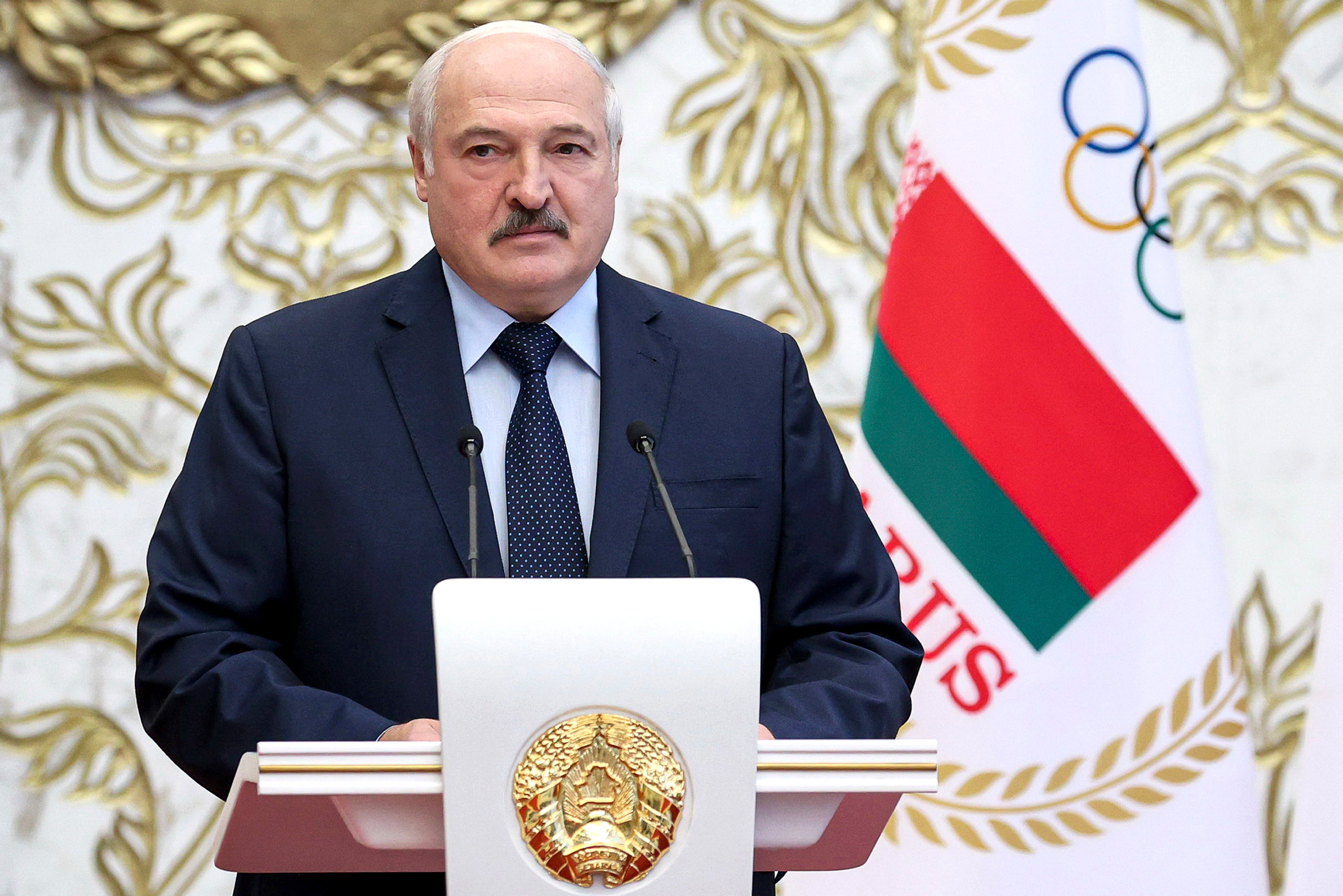Belarus arrests 3 journalists in continuing media crackdown
Authorities in Belarus have raided the offices of an independent newspaper and detained three of its journalists as part of a relentless crackdown on media outlets and civil society activists

Your support helps us to tell the story
From reproductive rights to climate change to Big Tech, The Independent is on the ground when the story is developing. Whether it's investigating the financials of Elon Musk's pro-Trump PAC or producing our latest documentary, 'The A Word', which shines a light on the American women fighting for reproductive rights, we know how important it is to parse out the facts from the messaging.
At such a critical moment in US history, we need reporters on the ground. Your donation allows us to keep sending journalists to speak to both sides of the story.
The Independent is trusted by Americans across the entire political spectrum. And unlike many other quality news outlets, we choose not to lock Americans out of our reporting and analysis with paywalls. We believe quality journalism should be available to everyone, paid for by those who can afford it.
Your support makes all the difference.Authorities in Belarus raided offices of an independent newspaper and detained three of its journalists Monday as part of a relentless crackdown on media outlets and civil society activists.
Alyaksandr Mantsevich, the editor of the Regionalnaya Gazeta (Regional Newspaper), and journalists Zoya Khrutskaya and Nasta Utkina, were detained, said the Belarusian Association of Journalists, or BAJ.
They were taken into custody after the search of the newspaper’s office in Maladzyechna, 80 kilometers (50 miles) northeast of the Belarusian capital, Minsk
BAJ said that a total of 64 searches have been conducted over the last 10 days. Thirty-two journalists in total are in custody, either awaiting trial or serving their sentences.
“The authorities have turned life into hell for independent journalists in Belarus with a conveyor belt of searches and arrests,” BAJ head Andrei Bastunets said. “There is an impression that the authorities have decided to leave the country without journalists.”
On Monday, authorities also froze the bank accounts of the Belarusian PEN Center, an association of writers led by Svetlana Alexievich the winner of the 2015 Nobel Prize in literature. Alexievich, a member of the opposition Coordination Council, left Belarus last year after being summoned for questioning by the state investigative agency.
On Monday, a court in Minsk also handed out prison sentences ranging from five to nine years to 11 people who were accused of coordinating “radical actions” and planning arson on a messaging app.
One of them, 26-year-old Yevgeny Propolsky, who was sentenced to eight years in prison, said during the trial that investigators beat and tortured him to force confessions.
“They threatened me, beat and tortured me with electric current,” Propolsky said. “They forced me to write a confessional testimony.”
The Viasna human rights center recognized the 11 people convicted Monday as political prisoners, saying there are a total of 562 in the country now. Viasna said the searches Monday targeted civil society activists and human rights defenders in the cities of Brest and Pinsk in western Belarus.
Belarus was rocked by months of protests after Lukashenko’s August 2020 election to a sixth term in a vote that the opposition and the West saw as rigged.
Belarusian authorities responded to opposition demonstrations with a massive crackdown, including police beating thousands of demonstrators and arresting more than 35,000 people. Leading opposition figures have been jailed or forced to leave the country, while independent media outlets have had their offices searched and their journalists arrested.
The West has responded to the crackdown by imposing sanctions on Belarus. The European Union ramped up the restrictions after Belarus in May diverted a passenger jet to Minsk to arrest a dissident journalist. The government in neighboring Lithuania has accused Belarusian authorities of organizing a flow of migrants from the Middle East and Africa in retaliation.
Lukashenko who has ordered to halt cooperation with the EU on stemming illegal migration, said Monday that Belarus could contain the flow of migrants if the bloc rolls back the sanctions.
“They have introduced sanctions to strangle us," Lukashenko said. "They take such action against the Belarusian people and they want us to protect them — listen, it's really weird. If you want us to help you, don’t put a noose around our neck.”
Sviatlana Tsikhanouskaya, Lukashenko’s main challenger in the August 2020 election, was forced to leave Belarus under official pressure immediately after the vote. She was in Washington on Monday for meetings with officials and U.S. House members to rally support for the Belarusian opposition.
“They have the power, they have weapons and they have been trying to silence people,” Tsikhanouskaya said. “But we have been standing up to them for a year.”